
‘If you’re looking for a place to set up shop, quit looking – you’ve found it.’
 Mike Brock TBD
Bianca Andrade Influencer
Mike Brock TBD
Bianca Andrade Influencer


‘If you’re looking for a place to set up shop, quit looking – you’ve found it.’
 Mike Brock TBD
Bianca Andrade Influencer
Mike Brock TBD
Bianca Andrade Influencer
Web Summit returned to Rio de Janeiro in 2024, gathering 34,397 attendees from 102 countries. Among them were 1,066 startups from 42 countries and 31 industries. Some 45 percent of these startups were founded by women – the highest proportion at any Web Summit event.
These attendees came together for 300 talks on subjects as diverse as climate activism, AI and the future of jobs, startup bootstrapping in an era of challenging funding, and fighting fake news.
Beyond the numbers, Web Summit Rio brought Brazil’s tech ecosystem into the spotlight. From Bianca Andrade to Nvidia’s Marcio Aguiar, we hosted founders and industry leaders from across Brazil who shared their stories and insights – many of which we share in this magazine.
We hope you’ll enjoy reading about the highlights from this year’s event.

34,397

Ariel Grunkraut, CEO and president of Zamp – the owner and operator of the Burger King franchise in Brazil –spoke about the growing preference for customers to order their food digitally rather than from humans.
“Today, 50 percent of Burger King sales in Brazil are digital. So we don’t interact with guests anymore – we have the app, we have the self-ordering kiosk, and we have the delivery,” said Ariel.
“The interesting thing is that, in Brazil, guests prefer to do interactions with the technology rather than doing the interaction with the crew member. So, when we realized that, we started to change the stores to what we call ‘100-percent digital’ stores.”
The CEO talked about how other sectors –including banking and streaming entertainment – have been using data for years to understand their customers’ digital and online interactions, and about how Zamp set about doing the same.
“The idea was, ‘why don’t we get the data?’. So we launched a loyalty program ... [that] today accounts for 40 percent of all of the sales of



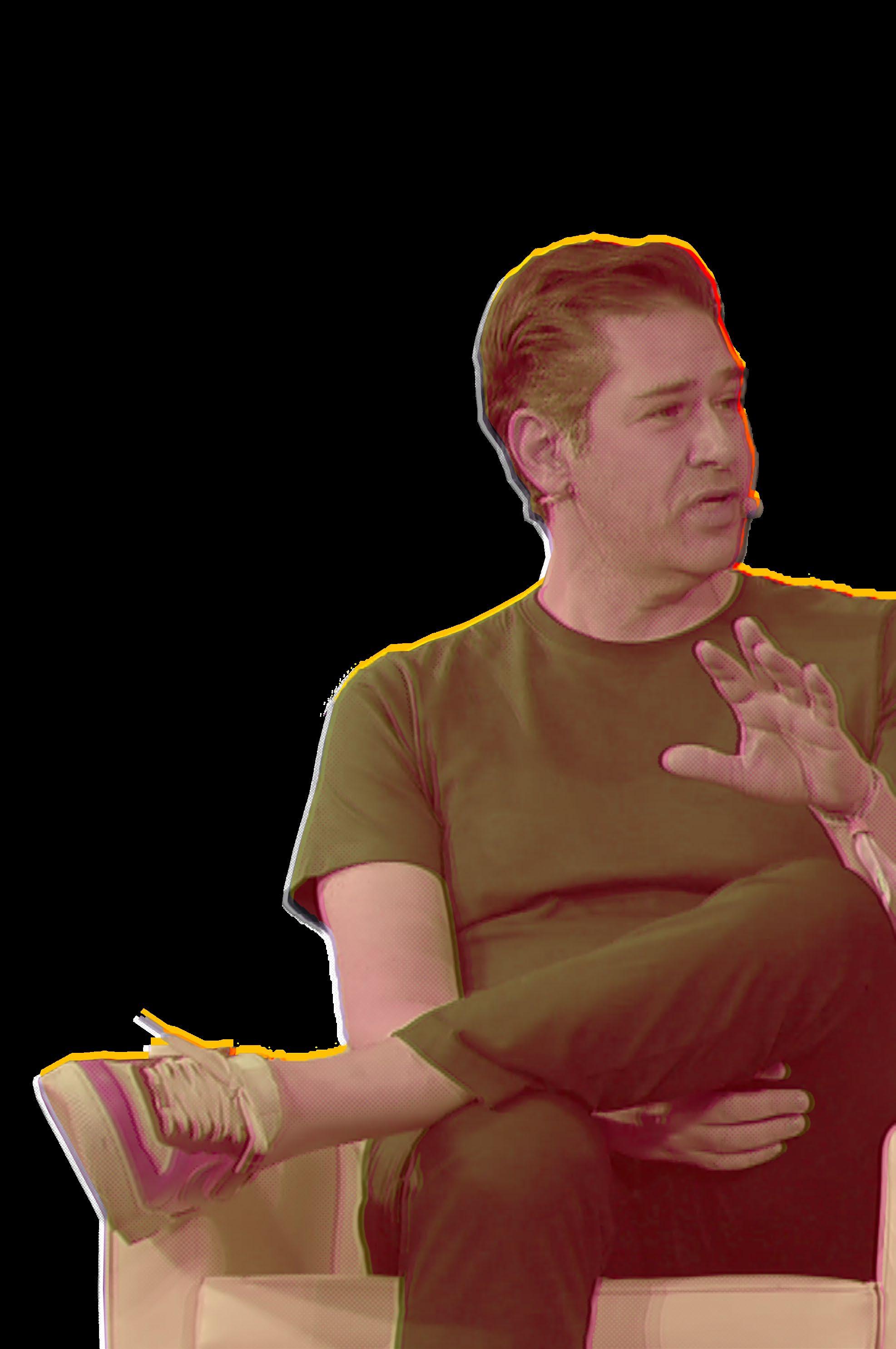

Bianca Andrade has almost 30 million followers across Instagram, YouTube and TikTok. Bianca, who hails from the favelas, talked about starting out as an entrepreneur, and about how her life before success makes her think about the social impact of her business.
“Since I started, I always thought about how I could give back to my community. I understand that I need to do something good for people with the influence I have today,” said the beauty influencer.
“Social networks bring an absurd benefit to business, but if we’re not aware of how much they can harm our mental health, we will not be able to follow our strategies.
“We get tired of seeing things as perfect, and I learned not to be a toxic influencer by being public. It is important to have selfawareness. Values are above numbers.”
“Social networks bring an absurd benefit to business, but if we’re not aware of how much they can harm our mental health, we will not be able to follow our strategies.”
Bianca Andrade Influencer

Guilherme Rodrigues, co-founder of PITCHwinning Brazilian SaaS startup deco.cx, spoke about his pride in winning the Web Summit Rio competition.
“Brazil is a giant market, but unfortunately that means lots of people assume that Brazilian companies can only serve the Brazilian market. And that’s what we’re out to prove – that that’s wrong; that we can serve global markets
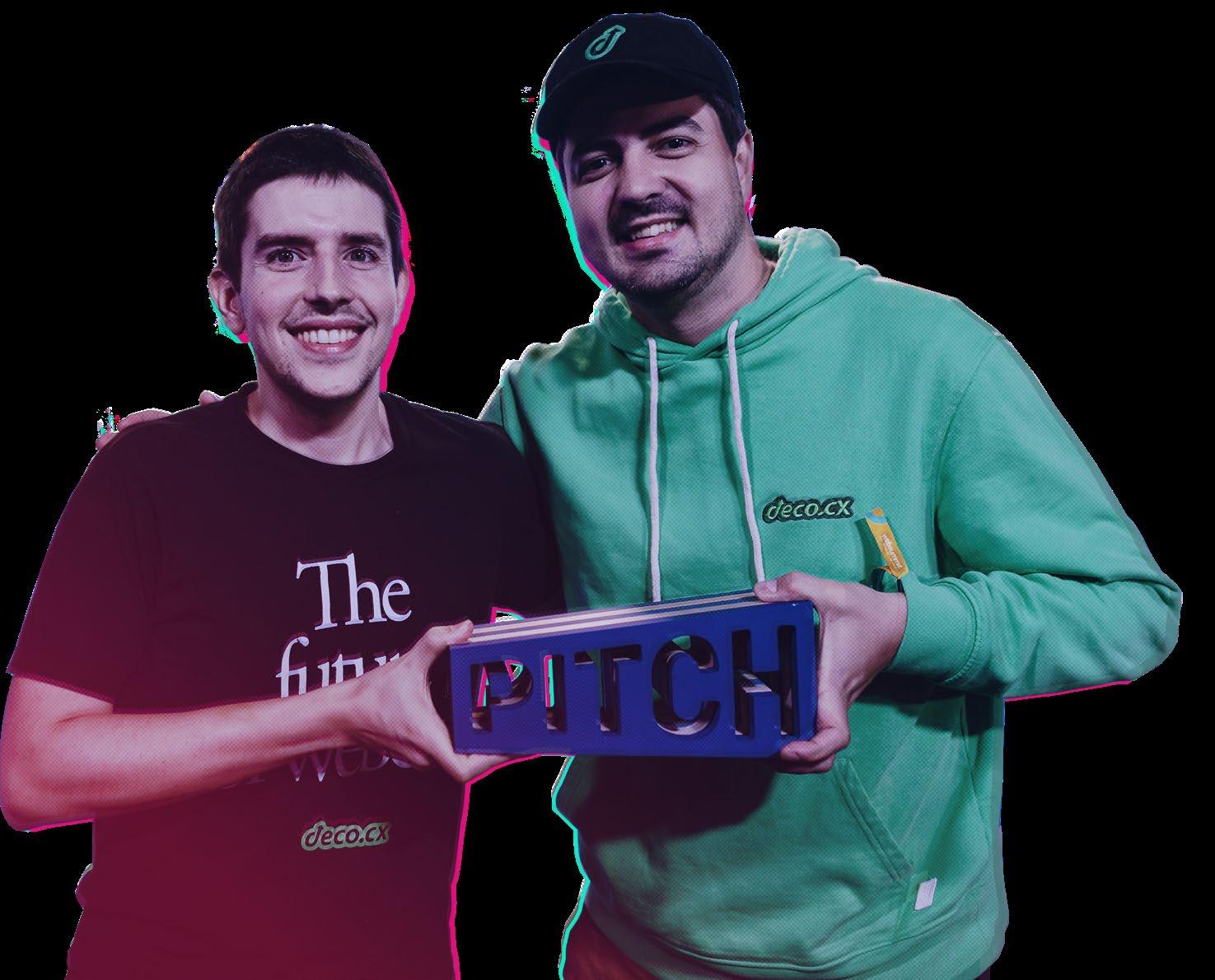
Speaking about deco.cx, the founder said it “offers the best of both worlds in one tool: the business autonomy of a local solution and the total customization for developers who have full code ID”
And the startup is growing fast: “This team has driven some great results. Just in the last 10 months, we went from three sites to 56 sites in production, serving some of the leading brands in Brazil.”
“Winning the PITCH competition shows that a Brazilian company can address a global market and build a global product.”
with
Bruno Mello is co-founder and CEO of Brazilian company Manycontent, a social media startup that uses AI to figure out bespoke social media strategies while creating and scheduling content.
“Creating incredible social media is hard for most businesses. It doesn’t matter the size of the business. Manycontent can understand your business, your audience and your competitors to start to create unique content,” Bruno said.
The founder explained that, through official partnerships with all the major social media platforms, Manycontent can schedule posts automatically using AI.
“2024 is gonna be awesome for us. Manycontent was launched in 2018, we have more than 14,000 users, but we are still 100-percent bootstrapped,” said Bruno.
“We’ve never had any kind of investment until now. This year we’re going to triple our size.”
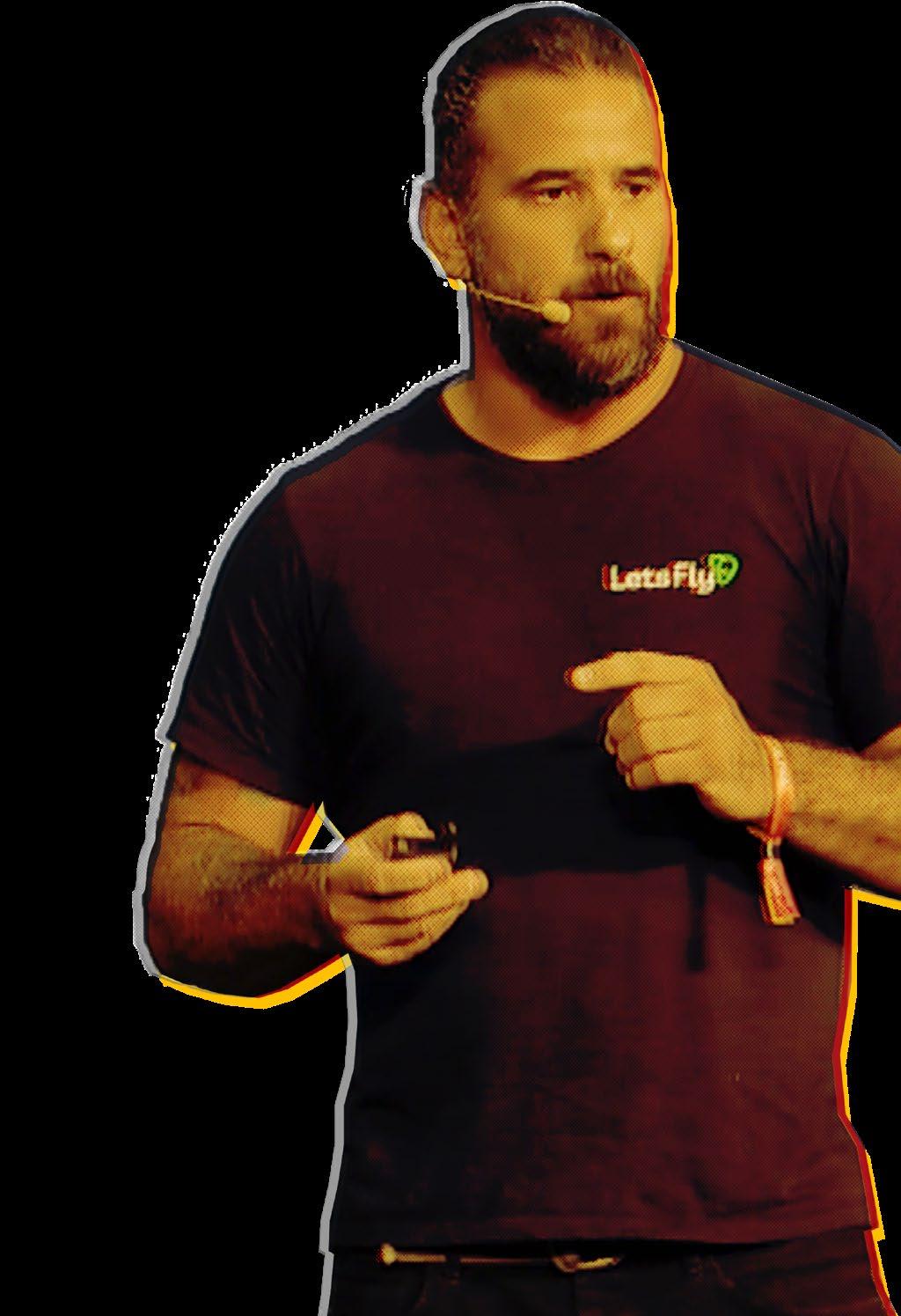 Guilherme Rodrigues deco.cx
Guilherme Rodrigues deco.cx
IBM VP and chief impact officer Justina Nixon-Saintil said that better training and education is needed, particularly in underrepresented communities, in order to close the growing global AI skills gap.
Justina’s comments come as studies show 50 percent of all employees will need reskilling by 2025 in order to meet the demands of tech innovation.
Speaking on Center Stage at Riocentro, Justina said: “We have more people in society who need to gain the right skills around AI because of automation and because of the need for the workforce to increase [the number of] people with skills in artificial intelligence.”
“A lot of the work that IBM is doing is providing free access to AI training, AI content and credentials so that people can move into the workforce,
be successful, and increase their social and economic mobility.
“IBM made a commitment to upskill 30 million people by 2030 because we realized that there was a significant skills gap, and we wanted to make sure that society had the tech skills needed to be successful in the workplace.”
According to Justina, commitments like these are crucial to fostering inclusive and diverse workforces. “So many marginalized and low-income populations are going to be left behind if they don’t have the skills to be ready for entry-level jobs in tech.”
“It’s so important to make sure we are scaling diverse groups and minority groups so that they understand AI and they can have a voice in the development of large language models and other models that feed generative AI.”
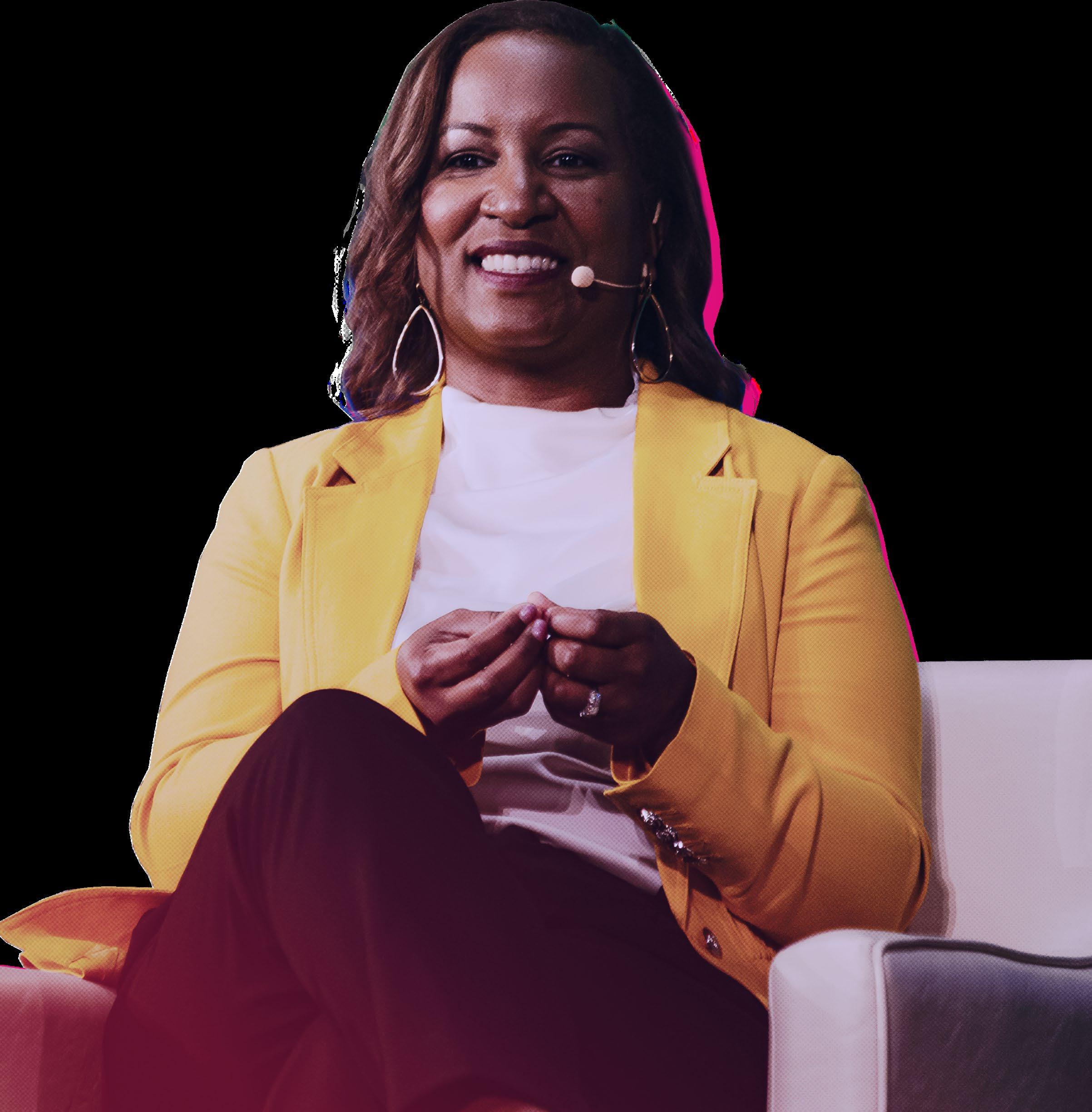

As the race for AI supremacy continues, Brazil’s position as a relative newcomer to the space could prove to be its strength, suggests an expert in AI law.
Where does Brazil sit in the AI arms race? “We’re facing a huge global competition ... with very important players in this field,” said Eduardo Magrani, professor at Harvard BKC and lawyer with CCA Law Firm. “But I would say that certain global south countries – such as Brazil – they’re
The law professor went on to say that – as humankind enters a period of “more intense competition” for AI – cultural and ethical considerations are important pillars of innovation.
“Certain global south countries – such as Brazil – they’re in a privileged position by not
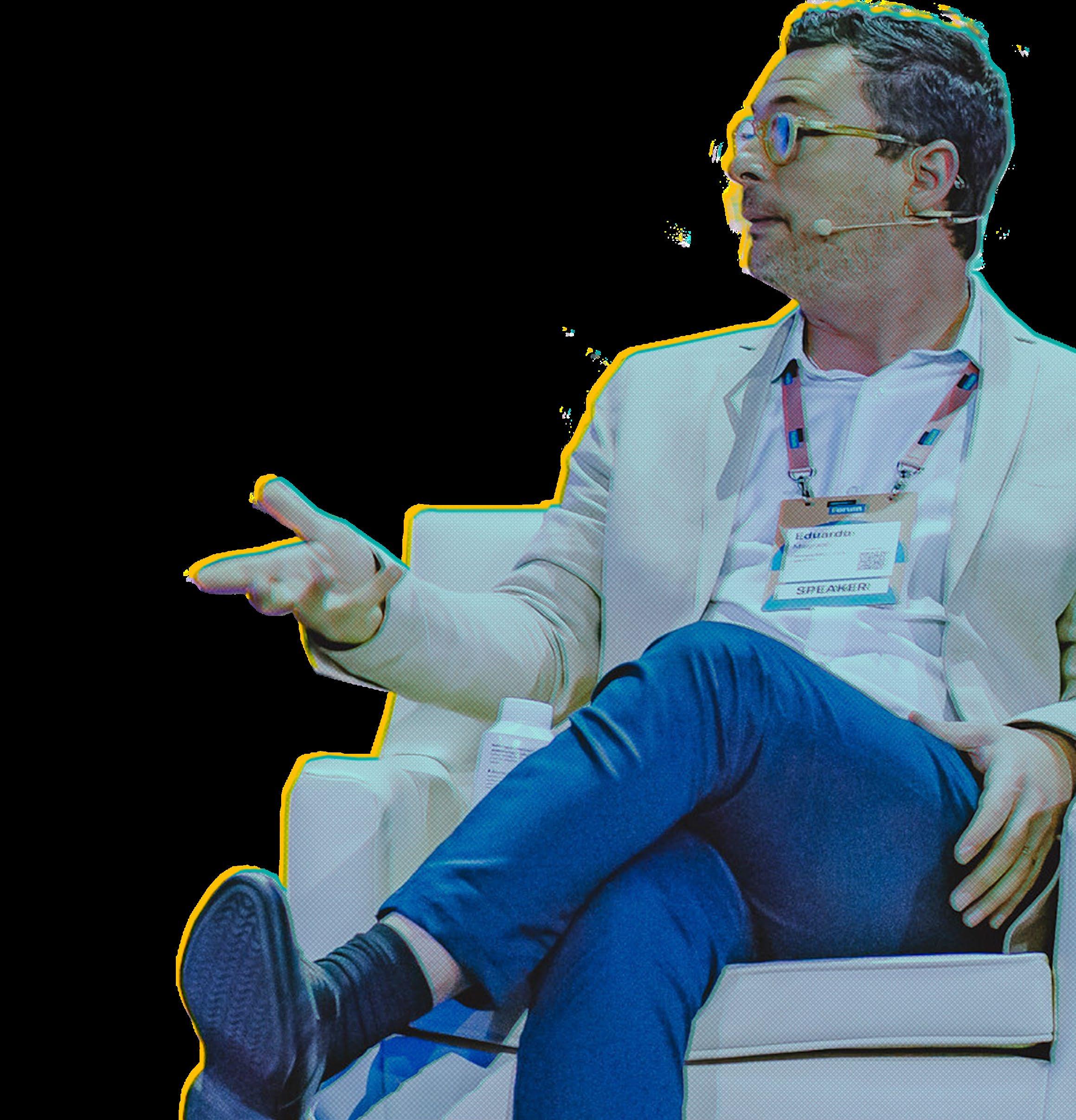

Rather than being dazzled by shiny new tech, Salesforce Brazil general manager Fabio Costa urges businesses to focus on the foundation before the future. Good data management, Fabio says, is key to utilizing generative AI effectively.
Speaking on the AI Academy stage, Fabio addressed the buzz around GenAI, positioning it as a secondary concern to the data revolution that is reshaping businesses today.
“We are talking a lot about GenAI,” said Fabio. “But GenAI follows [good data management] because, for companies, [what’s] even more important than the GenAI moment is the data revolution. In order to have efficient usage of GenAI, you have to restructure the way you use your corporate data.”
Fabio described the integration of structured data practices as a “big and silent revolution” , essential for businesses aiming to capitalize on the potentials of GenAI. “Take care of your data. Pay attention to them, as there is no efficient GenAI without very well-structured data.”
Fabio warned that the benefits of GenAI are also contingent on the quality of a company’s data. Comparing two hypothetical businesses using the same GenAI products, the general manager made this observation: “The game is over. One is winning – the one that has its own data organized and ready to be used by GenAI.”
“For companies, [what’s] even more important than the GenAI moment is the data revolution.”

Fabio Costa Salesforce
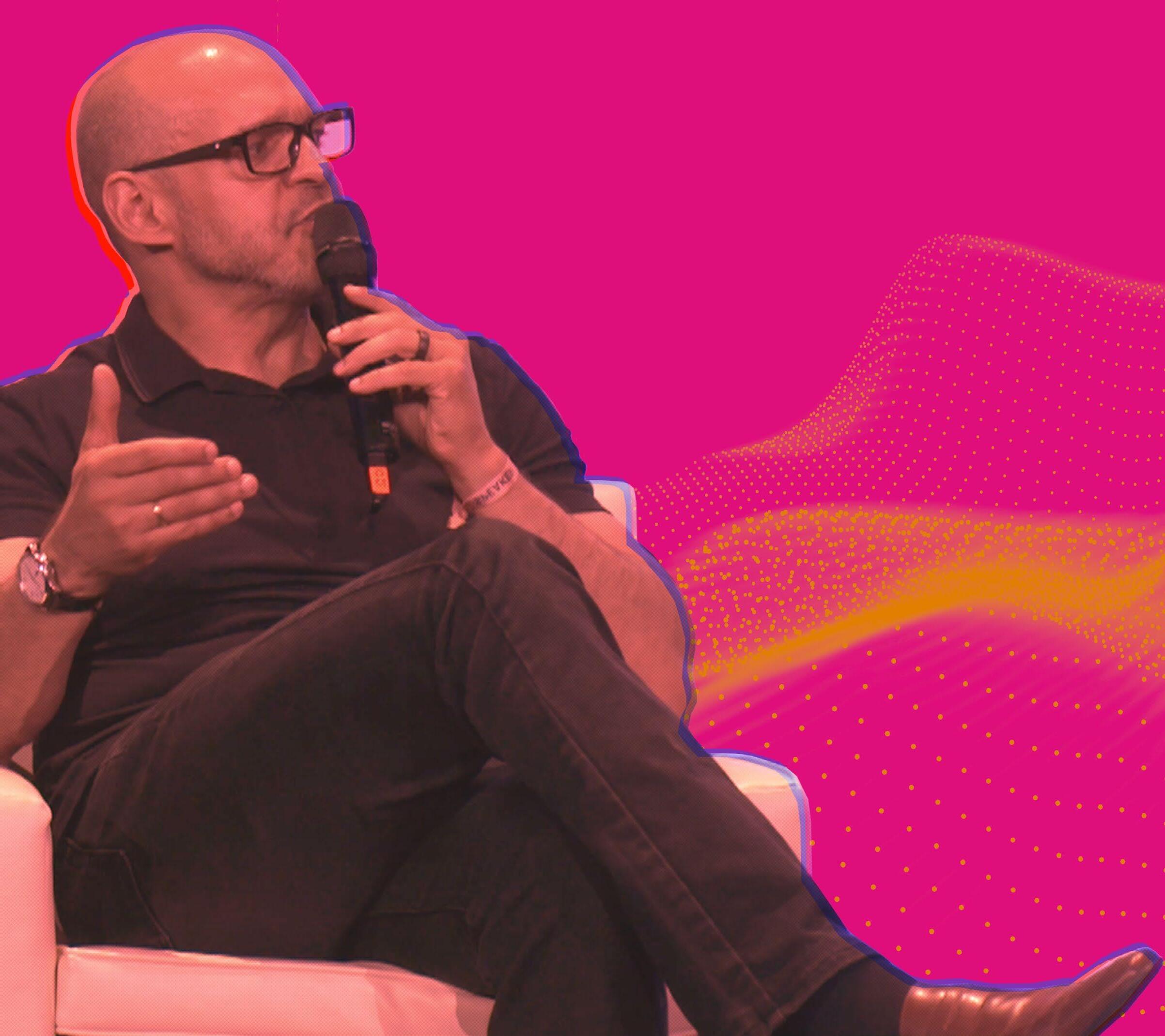 Fabio Costa Salesforce
Fabio Costa Salesforce
Chinese manufacturing giant BYD has signalled its confidence in the market for EVs, saying that penetration of new-energy vehicles has just passed
than 10 percent of global workforce, BYD Brasil president Tyler Li pushed back against the notion that “bad times are coming” in the EV market.
“I think this is a significant milestone in the world. It’s the first time that the new energy vehicles have passed over the normal [internal combustion engine] vehicles.”
The BYD Brasil president
manufacturer is also looking at solar-powered charging to help make EVs more green.
“Our dream is to have a green circle. To use [...] a solar panel to generate energy, and then to use the batteries to store this energy. Then to use all kinds of vehicles to consume this energy generated from solar power.”



Brazil is soon to get another supercomputer, with Nvidia’s drive towards microchip supremacy continuing. Nvidia’s Marcio Aguiar said the company plans to bring one on stream soon, telling Web Summit Rio attendees that Brazil is well positioned to take advantage of the growth in AI.
“I hope in a few months that we should be announcing a major supercomputer here in Brazil,” said Marcio, who is executive director of enterprise sales for Latin America Nvidia Corporation.
On AI investment in the region, Marcio said: “We are seeing more and more investments coming from South America. We are still a little bit timid compared to our neighboring countries, but we’re going to change because we have a lot of good, talented people.”
“Whenever I go outside of Brazil, we are always seen as the reference country. So, the potential is here, and it’s just a matter of a little bit of mindset changing and fine-tuning for the institutions that are responsible to form new individuals to
understand the potential that we have using AI,” added Marcio.

System Update founder Glenn Greenwald has said that we cannot accept potential threats to democracy as a valid reason for suspending civil liberties.
In response to a question about whether there are ever cases where it is justified to censor or suspend civil liberties, Glenn told the Web Summit Rio audience: “I think censorship has always been viewed historically as a weapon of authoritarian and fascist governments. It is almost never the case that a government that is devoted to democratic values wants to implement a censorship regime.
“I would love to live in a world where nobody ever says anything that’s false; people only say things that are true; every idea is free of hatred. The problem is that there are very intense debates over what ideas qualify and, if you put the power to determine truth and falsity in the hands of this person, they’re going to end up reaching conclusions completely different than putting power in the hands of that person.”
Debates about what constitutes hate speech – and what is deemed the truth or a lie – are under the microscope now more than ever, especially when it comes to media coverage of the war in Gaza and what is allowed on social media platforms.
According to Glenn, censorship around the war in Gaza has “severely infringed the ability to have a free and open debate about a war the entire world is debating”.
“Even if someone likes the way censorship is being applied right now, the question is, ‘is it dangerous to imagine what that would be used for if it one day fell into the hands of, not somebody that you agree with politically, but that someone you disagree with politically?’.”
“[Censorship has] severely infringed the ability to have a free and open debate about a war the entire world is debating.”
Glenn Greenwald System Update

Climate coverage focusing on solutions gives people hope, said Peter Prengaman, global climate and environmental news director at the Associated Press.
“When you can tell people, ‘hey, here’s something that’s working, and could help on a larger scale make the situation better’ … we actually see that readership goes up for those kinds of stories. People want the solutions. They don’t just want the doom and gloom,” said Peter.
“We have to describe why tenths of a degree matter a great deal.”Peter Prengaman The Associated Press
But the news director warned of the willingness of climate deniers to shoot down solutions, some even going as far as to say global warming is a good thing. “How do we confront that?” asked Peter.
One approach is to “show why, even if you live in a place that’s frozen and it warms up a little bit, that might be good for you as an individual ... but it’s bad for the planet”
“That’s part of what we have to do. We have to explain. We have to describe why tenths of a
degree matter a great deal,” added the news director.
“Stories have to be accessible to people, and I think one of the errors of climate journalism in the last 10 to 15 years was too much focus on science. Stories should be about people, because as humans we’re just really curious about what other people are doing.”




Brazil’s deputy minister of science, technology and innovation has said the impact of a former “dangerous movement” in the country has made Brazilians feel very strongly about protecting their democracy from the threat of online fake news.
Luis Manuel Rebelo Fernandes said: “You have to defend democracy … by guaranteeing full democratic rights and not accepting using social media to disseminate fake news, which operates against democracy.”
The deputy minister was asked about the investigation into Elon Musk launched by a Brazilian judge after Elon said he would defy a court order to remove accounts accused of spreading disinformation in Brazil from social media platform X.
Luis’s comments received applause from the audience at Web Summit Rio, as the deputy minister alluded to the impact of former Brazilian president Jair Bolsonaro’s time in office.
Luis said: “I think the Brazilians are applauding here because that’s a very strong point for us. We dealt with a very dangerous movement, and we want to defend and support democracy.”
“You have to defend democracy … by guaranteeing full democratic rights and not accepting using social media to disseminate fake news.”


TikTok is not social media, says Gabriela Comazzetto, general manager of global business solutions for LatAm at the

“The main role of TikTok is entertainment. It’s about content. It doesn’t matter if you follow many people – the feed is built based on topics of interest.
“Everyone compares us with these brands – Snapchat, Facebook, Instagram and X – but you don’t go on TikTok to see what a friend is doing; you go there to watch content.”
The concept of ‘shoppertainment’ is at the heart of the platform, Gabriela said.
“It’s not just about selling or entertaining; it’s about selling through entertainment.
“The brands today that are having all this success have understood how to make this communication – how to deeply engage with the community – and, consequently, are selling more and more. Walt Disney once said, ‘people spend money where and when they feel good’, and that’s what TikTok is. People come to the platform and they say that TikTok lifts their spirits.”
TikTok, said Gabriela, was Latin America’s fastest growing social media platform in 2023. With more than a billion monthly active users worldwide, nearly a hundred million of them are located in Brazil, putting the country third in global rankings after the US and Indonesia.
In an impassioned speech at Riocentro, Helena Gualinga, co-founder of the Indigenous Youth Collective of Amazon Defenders, shed light on the ongoing battle to protect the Amazon rainforest from extractive industries.
“We have, throughout my lifetime, faced a lot of threats, particularly from oil companies,” today is very much around ‘how do we protect the Amazon rainforest from extractivism?’. Not just oil, but any kind of extractivism coming into our territories with extreme force, violating human rights, and – in general – being very destructive.”
Helena described the impact private companies have had on communities
when entering a territory without consent, often with government backup.
“Every day, the battle is different, but the purpose is the same. What we are asking for is that Indigenous people have sovereignty over our lands.”
In practical terms, the activist described
“Every day, the battle is di but the purpose is the same. What we are asking for is that Indigenous people have sovereignty over our lands.”

Last year, Mombak inked a deal with Microsoft that represented one of the largest ever nature-based deals to remove 1.5 million tonnes of carbon from the earth’s atmosphere.
Mombak co-founder and CEO Peter Fernandez thinks the Microsoft deal is single largest carbon removal offtake to date”, pledging that the company was going to be “the Saudi Aramco of carbon removal”
Peter went on to say that “humanity’s single largest opportunity today to remove carbon from the atmosphere is by doing reforestation in Brazil, specifically in the Amazon. And
Peter added: “I’ve actually come to understand that climate change is the most capitalintensive problem in human history, other than the industrial revolution and world wars. So
“Humanity’s single largest opportunity today to remove carbon from the atmosphere is by doing reforestation in Brazil, specifically in the Amazon.”


The UN has said that, in order to reverse the degradation of ecosystems worldwide, countries need to restore one billion hectares of forest and other natural lands by 2030.
Morfo co-founder and CEO Grégory Maître explained that, at the current pace, we’re only going to reach five percent of this target, adding that Brazil alone holds one-sixth of the world’s degraded land.
“In the last 40 years, the forest cover in Brazil went down from 75 percent of the territory to just 60 percent of the territory,” said Grégory.
“This is a pity, but this is also a huge opportunity for Brazil,” said the CEO, who explained that Morfo’s drones drop seed pods down on these deforested lands – including in the Amazon rainforest – covering about 50 hectares per day, which is 50 times more than what could otherwise be covered.
Among the 19 projects the startup has running in Brazil, Africa and French Guiana is Mata Atlantica, a former sugar plantation that lay empty for 15 years, but that has started to regenerate in the last nine months thanks to drone delivery of native seeds.
“In the last 40 years, the forest cover in Brazil went down... to just 60 percent of the territory.”



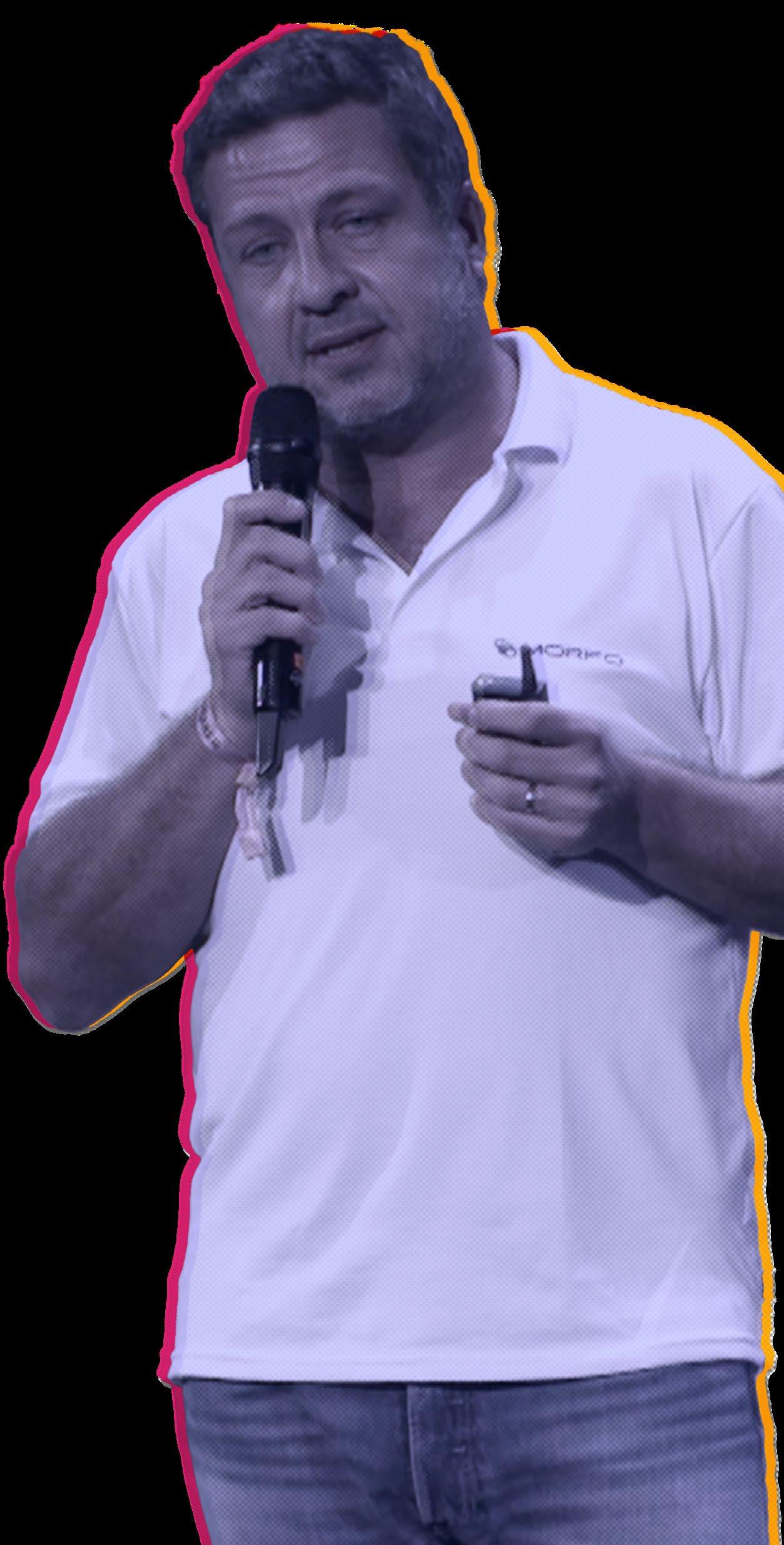

‘The winter is over’: 500 Global’s optimistic outlook for 2024 startups
500 Global managing partner Bedy Yang believes the fundraising landscape for startups will improve in 2024: “I think the overall sentiment, at least from an investor perspective, is that the winter is over.”
Bedy cited a survey from Kaufman Fellows showing that “most people – over 50 percent – think, ‘2024, we are going to do more investments than 2023’.”
Be prepared to go out and hear a lot of ‘no’. But at one moment, if you’re prepared, you’ll get the ‘yes’.”
Bedy Yang 500 Global
However, the managing partner conceded that 500 Global’s rate of investment had slowed.
“We did 250 deals last year. We invested in 250 companies instead of 300. So, even for us, one of the most active investors in the world, we have slowed down a little bit.
“One [of the challenges facing the industry] is the high interest rate. And, second of all, the stocks are very high. So when they think about alternative investment, do they have that liquidity to pull capital out from one place to get to another place?”


‘If you are an investor, invest in women. They exist. Look for them.’
Rafaela Frankenthal, co-founder and CEO of SafeSpace, has urged investors to work harder at finding women-founded projects to support.
Speaking on a panel at Web Summit Rio, Rafaela challenged investors to do more to seek out and support women founders – and to be accountable for diversity levels.
“If you’re an investor, invest in women. They exist. Look for them. Diversify your pipeline sourcing,” Rafaela said. “If you’re a founder, mentor women. Invite them to social events. Celebrate their achievements. Hire them.”
Rafaela added: “If you have a 70-percent male team, that’s not good enough. You can do a lot better, so hold yourself accountable and hire women. And, if you’re a leader working in a tech company, promote diversity and inclusion initiatives, and question decision-making processes and biases in hiring and promotion. So everyone has a responsibility here, and there is something for each and every one of us to do.”
Rafaela told the Web Summit Rio audience about her own struggles to secure funding as a woman founder.
“Drawing from my personal experience as a tech founder, the biggest obstacle that women face today is access to capital. It’s really hard – could say impossible, in some cases – to build innovative technology without access to capital, and the VC industry today is dominated by men.
“There are biases everywhere in the decision-making processes –especially when we’re speaking of early-stage, where most of the decisions are mainly based on gut feeling, so they are really vulnerable to biases – and this is a huge problem.
“Just so you have an idea of the size of the gap, to date, only 4.7 percent of Brazilian startups are founded by women.”
However, Rafaela did say that women are starting to have a huge impact in previously neglected areas of tech.
“I think there’s so [much] exciting stuff going on in tech at the moment, and we’re seeing basically the first batch of female founders finally getting access to the opportunity and building their own vision.
I think the most exciting opportunities here are in areas that
have been neglected or not invested in enough because these are problems that disproportionately affect women.
“We now call it femtech, but basically where it’s talking about problems that affect women more than men. Some examples would be period pain, endometriosis, IVF… It’s in the health sector. There are so many exciting opportunities to solve issues that proportionately affect women, and I think this is great.”

‘Forget investors – get paying customers instead,’ AI startups advised
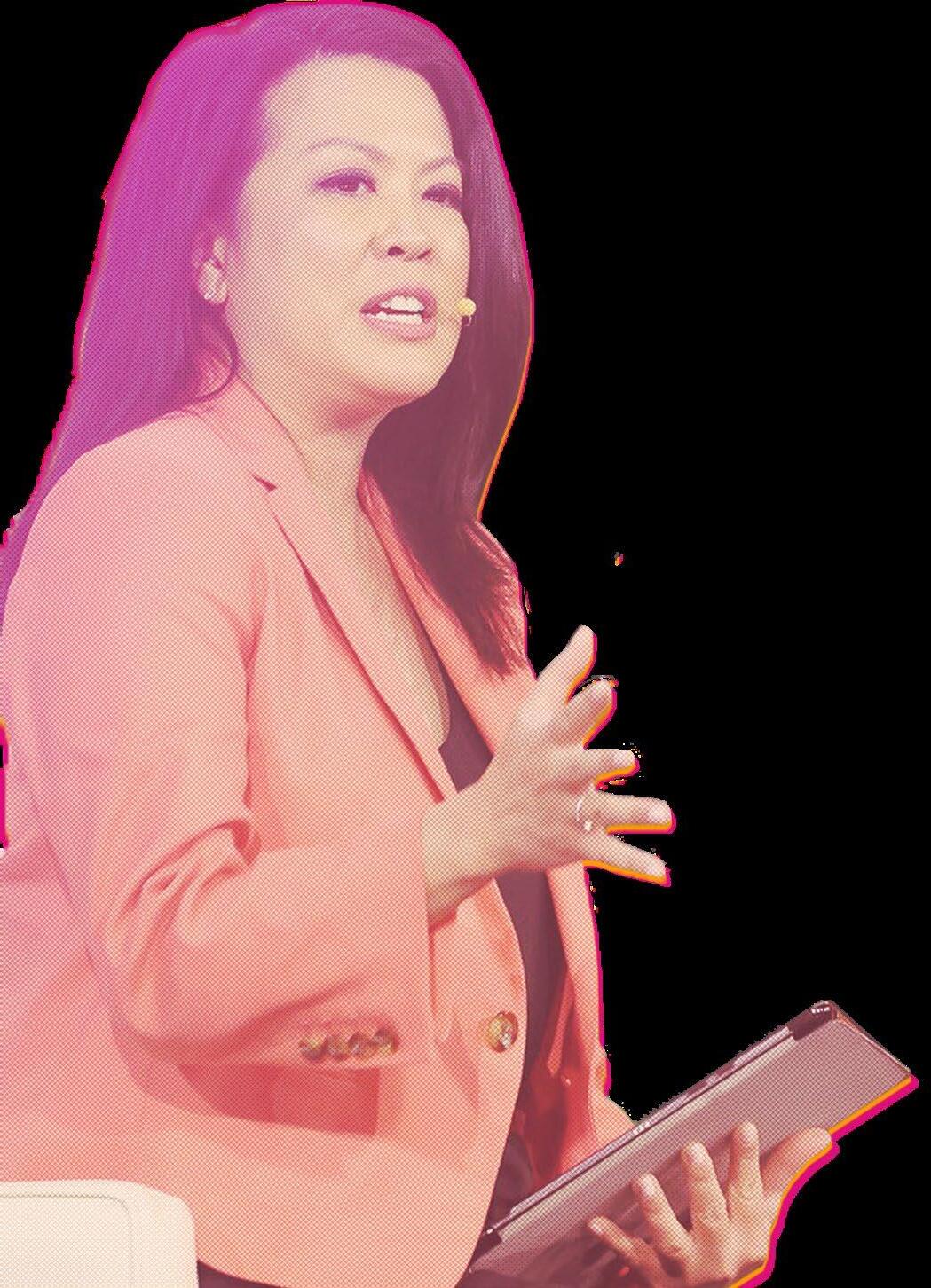
Scan the daily tech and financial headlines and you’ll find “pretty eyewatering numbers when it comes to AI valuations”, says CGTN America anchor Elaine Reyes.
“I think what they’re getting wrong is ... focusing on valuation, not innovation,” said HubKonnect co-founder and CEO Michael Koch.
“And where innovation lies is not in the larger companies ... where they’re gonna get large valuations. It’s in the small companies that are focused strictly on innovation; focusing
on the technology to build realworld solutions that drive real-world results.”
The solution, says Michael, is not for small startups to go looking for the right investor, but to consider whether they even need one: “How about we don’t find an investor at all? How about we focus on the technology? The product?”
“Find and solve a real problem. Find the clients – get a fulltime, paying customer –because until you have a client that’s going to pay full price for
Antler founder and CEO Magnus Grimeland has said that the chances of succeeding alone as a founder are very low, and that the overwhelming majority of unicorns are built by co-founders or teams.
Speaking at Web Summit Rio, Magnus said: “Less than 0.5 percent of all unicorns in the world were built by one founder. So the chance of succeeding alone is very low. It’s still possible, but it’s very low. And the reason for that is, in the early days of building a company, it’s only you. And if there are two or three of you that have different skill sets and work very well together, that capacity in the early days of creating momentum and front-loading your business becomes much higher.”
Magnus also identified three key things he looks for to determine a company’s chances of success: “Spike, drive and grit.”
“Spike is something the founder is better at than most other people. … I think everyone has a strength, and I think great founders have really honed that strength to become exceptional at it.
“The second thing we look for is drive. … And the third thing we look for is grit. Amazing founders have this tendency to never give up. When things get really, really tough, basically find ways around that. They iterate their business model. They stay on.”

“How do you compete with traditional banking? You put a bank branch in everyone’s pocket.”
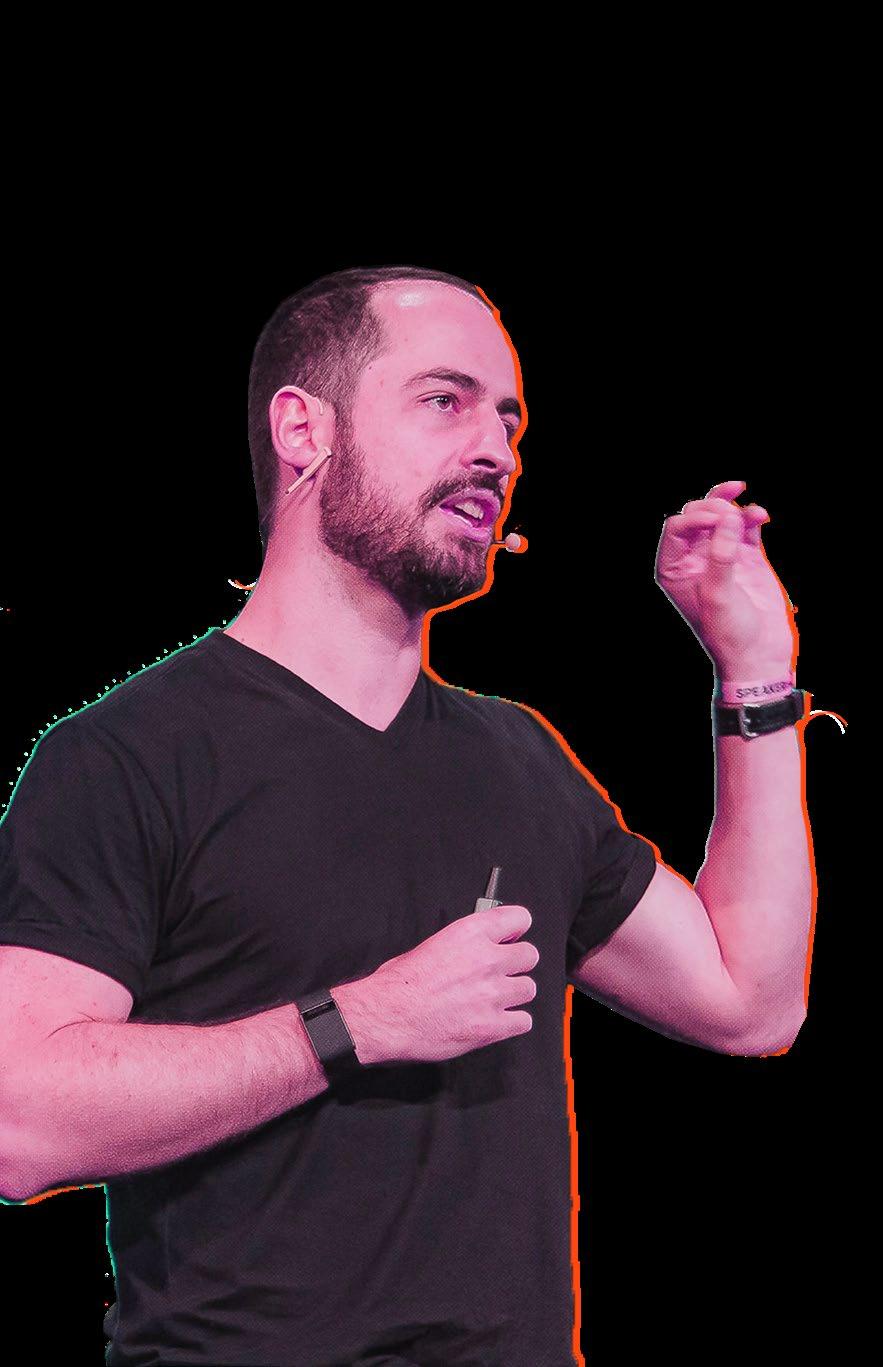
So said Vitor Olivier – CTO of one of the world’s biggest digital banking companies, Nubank –who explained that expanding access while reducing risk is the key to success in digital banking.
Speaking at Web Summit Rio, Vitor discussed the impact of AI on the finance sector, and how Nubank went about becoming an “AI-first” operation.
“[It’s] not just plugging in a model here and there. It’s about creating AI systems. It’s plugging into a broader context that allows us to create a system that drives insight; that drives decision-making.”
“So, it’s a combo of automation, a combo of traditional machine learning approaches, and a combo of retrieving information,” added the CTO
“ We’ve been building these AI systems for a while. So, to give you a sense of the impact that they can have, in the time span of a year, we have over 5.7 million customers getting their first credit products with Nubank. Our cost of risk on average is 15-percent lower than the industry. And then interest rates on average? We’re five percent lower than the industry.”
Generative AI has been making headlines as a tool with all kinds of potential, but André Ferraz – founder and CEO of location identity firm Incognia – warned of the negative use of this technology by cybercriminals.
“ChatGPT and other solutions like this are enabling these scammers to be way more effective in two ways. The first one is scaling out their operations, so they’re able to create multiples of these messages and emails for different users very effectively, and with a lot of personalization.”
André went on to explain that biometric systems including face recognition and voice recognition are now under threat because criminals can capture an image of an individual from social media, and use AI to animate that image so it appears to be live footage.
“[At Incognia] we start from very basic principles, which are ‘for every online transaction, you’re always doing this from a digital device and from a physical location’. And this is all that matters to us,” explained the founder.
“So we focus on understanding these two things: ‘Which device are you using?’ and ‘Where are you?’. And, based on that, we can determine the level of risk.”


From payments and neobanks to crypto and cash, Latin America is a dynamic market for fintech, with some work to do on the fundamentals.
“We continue to believe that bitcoin is going to enable a whole class of opportunities for moving value around the world, which is simply not possible with traditional fiat rails.”
That is according to TBD CEO Mike Brock, who asked about the role bitcoin will play in the future of the decentralized financial world.
“But we also are very realistic in terms of realizing that there’s a lot of infrastructure that still needs to be built in order to allow bitcoin’s use as an institutional-grade asset,”
“We continue to believe that bitcoin is going to enable a whole class of opportunities for moving value around the world.”

“What people in the bitcoin space sometimes don’t appreciate is the lack of recourse in blockchain payments. Like, if you send money to the wrong wallet or you send money to a fraudster, and you don’t know who that person is, you have no potential legal



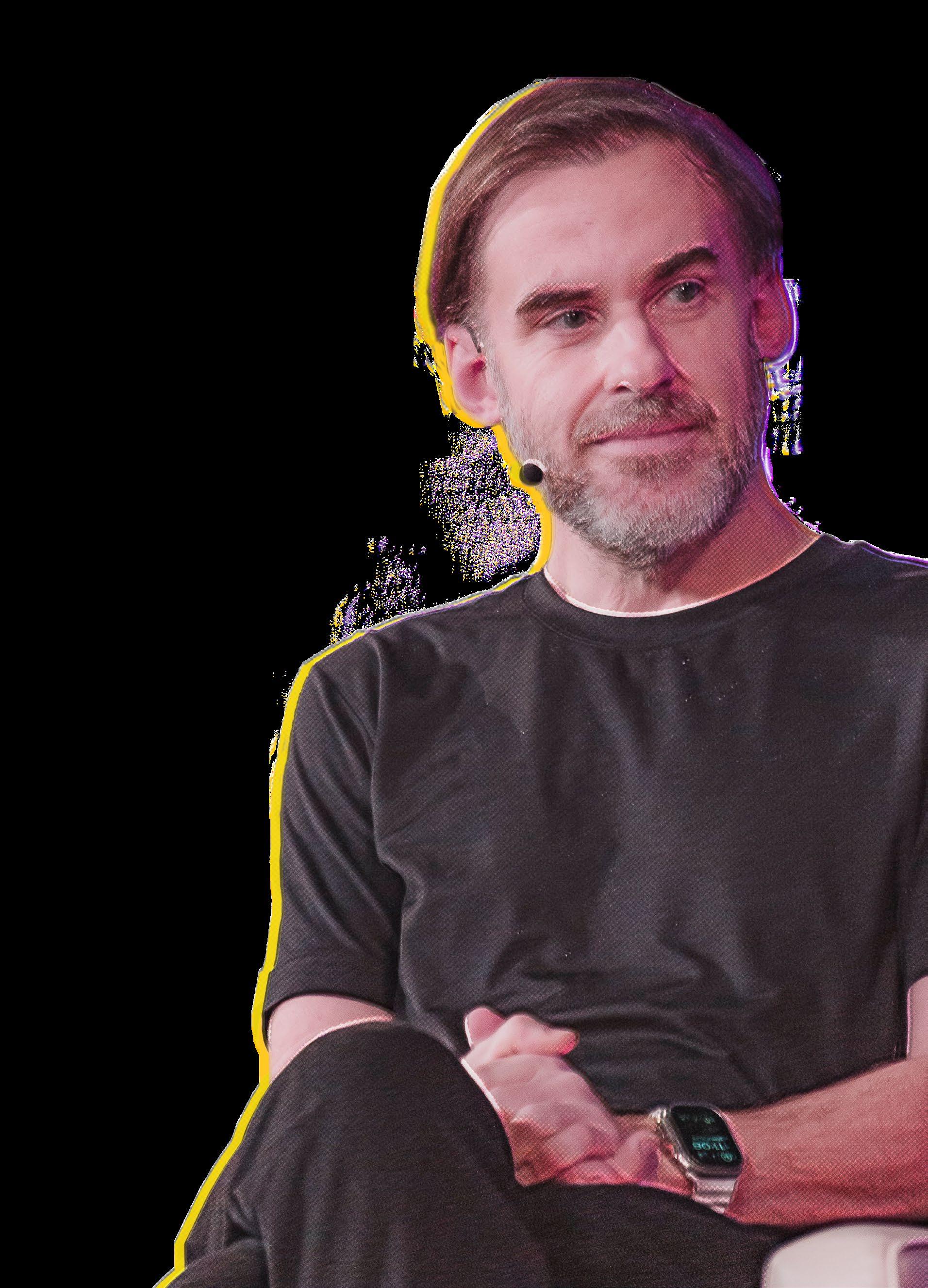
Pomelo co-founder and CEO Gaston Irigoyen thinks that Latin America’s payments market has “dramatically changed”, and called out Brazil as a trendsetter in the region.
While noting that “Latin America still has to work a lot on the plumbing and the fundamentals of basic industries (not only financial services, but education, health and so on),” Gaston said that fintech companies such as Pomelo are thriving despite the challenges, and that Brazil is a key part of that success.
“Whatever happens in Brazil eventually gets to all the other markets. So, by working in Brazil, you are better positioned to be part of the innovation in all the other markets,” said Gaston.
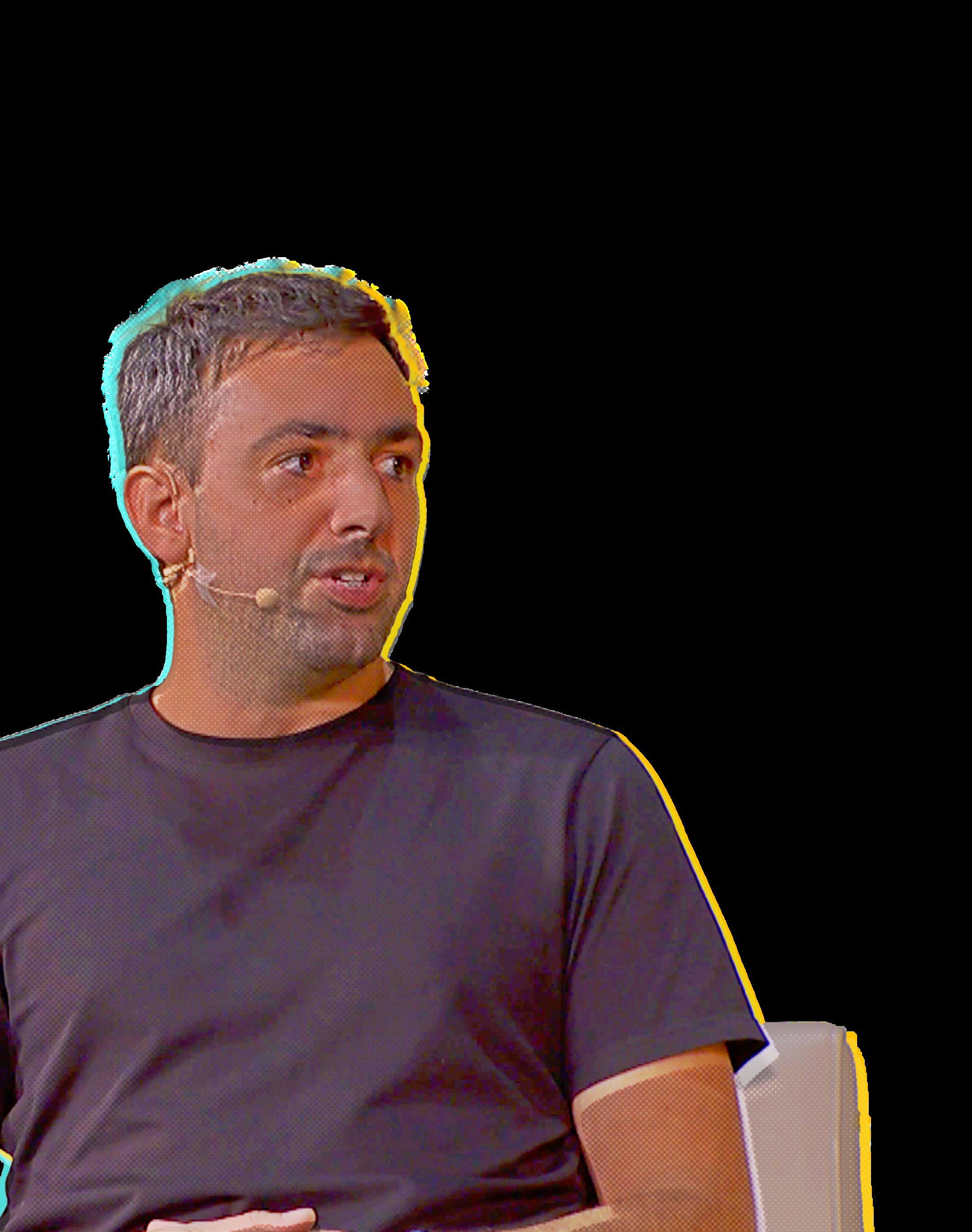
“We’re part of a macro trend in Latin America, which is ‘going multi-rails’,” said the founder and CEO, who went on to explain that, historically, LatAm economies have been cash-only, with wire and card payments becoming mainstream only about 40 years ago.
“Now we’re living – especially in Brazil – a multi-rail present with real-time payments and pings. But, in some other markets, crypto payments and crypto money movement or blockchain-based money movement is also very relevant. So, Latin America is going to a future with many rails,” declared Gaston.
Below, meet some of the key companies and partners helping us drive our Impact initiative across our events.

























Web Summit strives to empower its team and community to work towards a more sustainable future through its Impact program, which is dedicated to contributing to the 17 United Nations Sustainable Development Goals (SDGs).
While Impact has always played a pivotal role in Web Summit’s work, it is now moving to a new and exciting stage through the establishment of the Impact steering committee. Led by Karena Walshe, head of Impact partnerships at Web Summit, the committee brings together an all-women team consisting of startups team lead Margarida David, VP of community Carolyn Quinlan, VP of communications Katherine Farrell and senior speaker producer Alice McDermott, who has built the bedrock of Impact over a number of years.
“We celebrate companies and mission-driven organisations that are focused on safeguarding the climate, diversity, equity and inclusion, and education.”Karena Walshe Head of Impact Partnerships at Web Summit

Web Summit runs the world’s largest technology events, connecting people and ideas that change the world.
Web Summit events have gathered half a million people across Web Summit in Lisbon, Web Summit Rio in South America, Web Summit Qatar in the Middle East, Collision in North America and RISE in Asia since the company’s beginnings as a 150-person conference in Dublin in 2009.
Politico has said we run “the world’s premier tech conference”, the Atlantic that Web Summit is “where the future goes to be born”, and the New York Times that we assemble “a grand conclave of the tech industry’s high priests”
At a time of great uncertainty for many industries – and, indeed, the world itself – we gather policymakers, heads of state, fastgrowing startups, and the founders and CEOs of technology companies, to ask a simple question: where to next?
Our mission is to create meaningful connections between the CEOs, founders, investors, journalists, politicians and cultural figureheads who are reshaping the world.